CRASH (1996)
After getting into a serious car accident, a TV director discovers an underground sub-culture of omnisexual car-crash victims who use vehicle accidents to rejuvenate their sex lives.
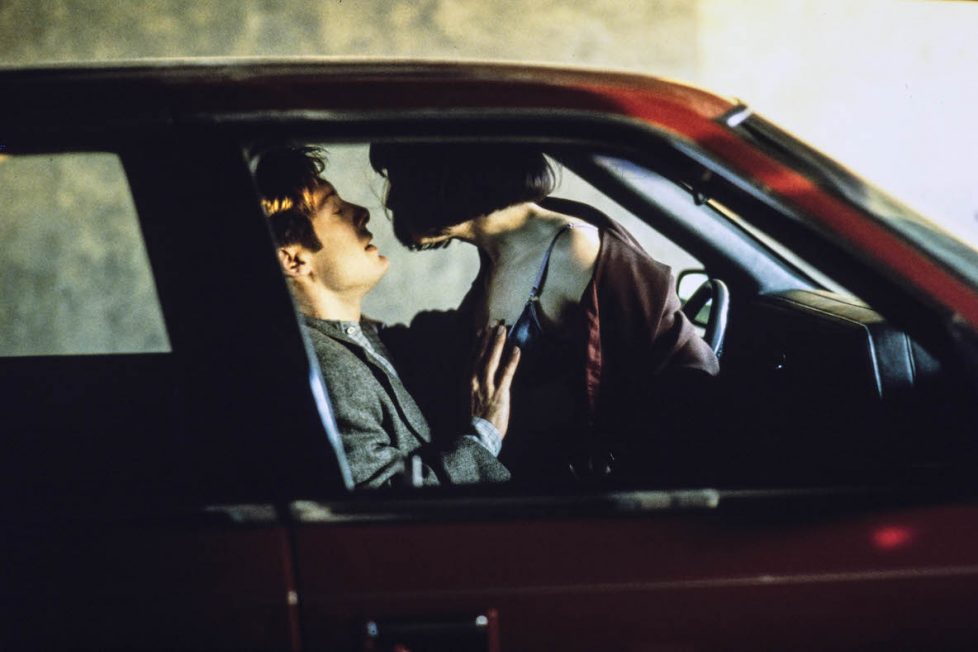
After getting into a serious car accident, a TV director discovers an underground sub-culture of omnisexual car-crash victims who use vehicle accidents to rejuvenate their sex lives.


J.G Ballard’s 1973 novel Crash was a work of transgressive fiction that caused great controversy at the time, so when the same reaction was achieved by David Cronenberg’s film adaptation it was mission accomplished. Crash was at the centre of many Cannes Film Festival brouhahas, with audiences walking out of screenings in protest. Francis Ford Coppola was jury president the year Crash was at the prestigious festival, and detested it so much he refused to award Cronenberg the Special Jury Prize. So has another couple of decades of distance lessened this movie’s extraordinary cultural impact?
James Ballard (James Spader), a character named after the author in both the film and book, is a film producer with an unusual sex life. He’s married to Catherine (Deborah Kara Unger) but they have an open relationship, meaning both are free to have sex with strangers and report back on their carnal activities to arouse each other later. The film opens with Catherine having sex with a man in an aircraft hanger, as her breasts rub against the wing of a plane, in a curious foreshadowing of the story’s intention to explore human sexuality in a world overrun with more metal than flesh.
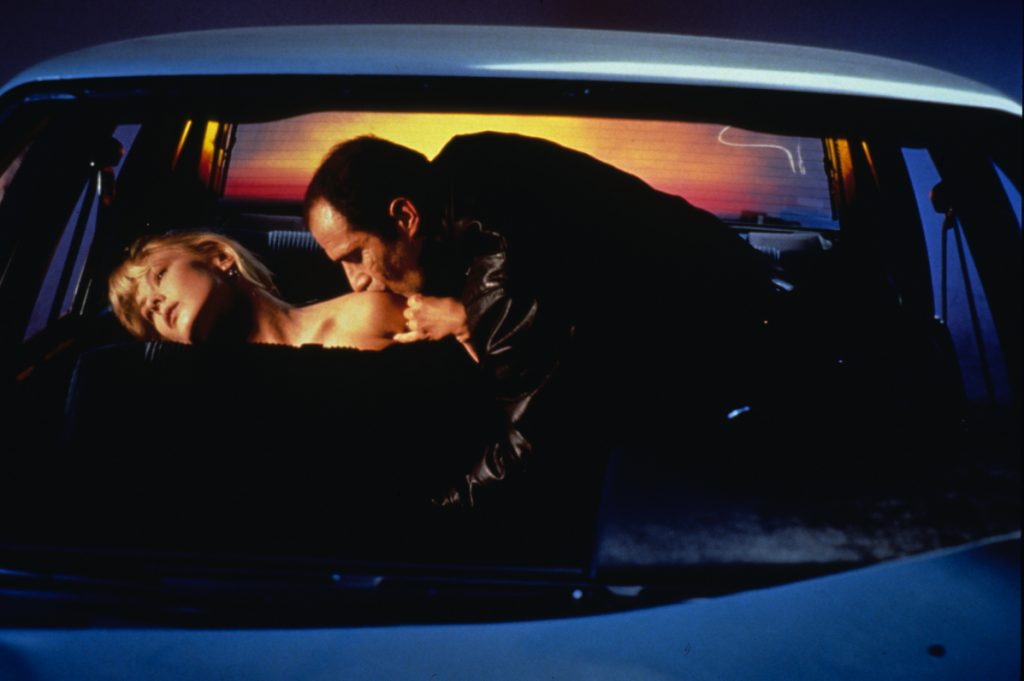
While driving home one night, James is involved in a car accident on the freeway and narrowly avoids dying. In the aftermath of the crash he makes eye contact with Dr Helen Remington (Holly Hunter), the only survivor inside the other vehicle he hit, who unwittingly exposes a breast to him while trying to remove her seat belt. Perhaps it’s at that moment when James’ mind connects tragedy to sexual arousal, as it starts him down a bizarre path while recuperating in hospital. It doesn’t help that both James and Helen meet Bob Vaughn (Elias Koteas) soon after at the facility, taking a peculiar interest in James’ leg injury, who is revealed to be part of a group that fetishise car crashes. The closest real-world terms are symphorophilia (the state of being aroused by watching tragedies) or autassassinophilia (the state of being aroused by the risk of being killed).
James and Helen start having an affair, bonded by their life-threatening experience together, preferring to have sex inside cars, while spending some evenings watching Vaughn’s performance art meetings where he recreated famous car crashes using vintage cars and stunt drivers. It’s not your ordinary first date, that’s an understatement.
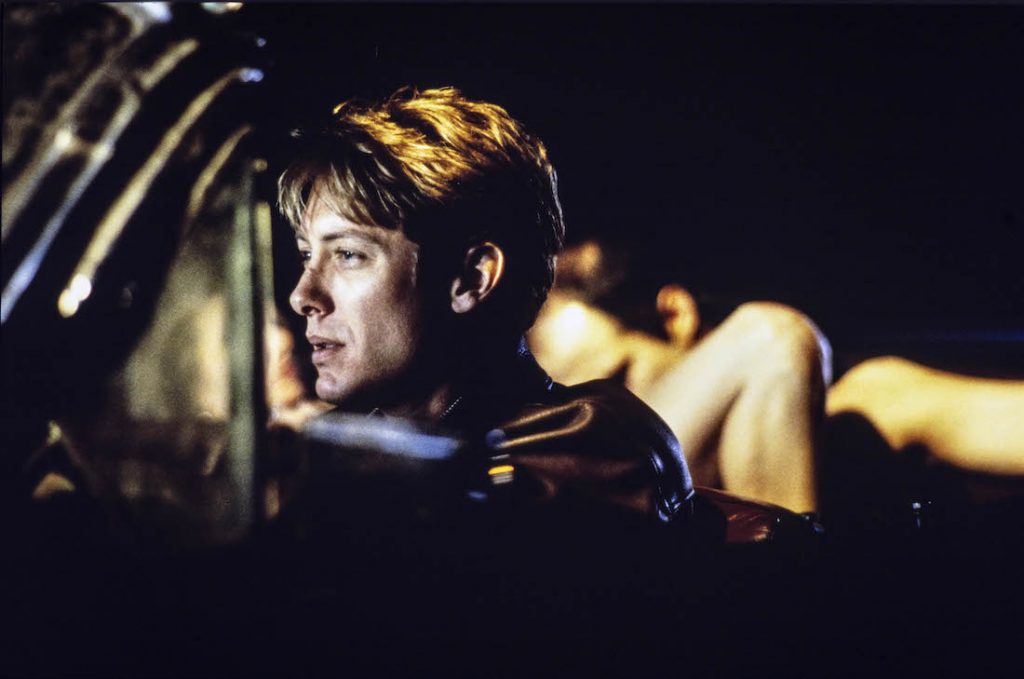
The whole point of transgressive stories is to push boundaries and break taboos, in order to get at some truth that can be ignored by societies conditioned to keep dark and troubling thoughts to themselves. It’s undoubtedly the reason why they’re always popular, as they speak directly to repressed social impulses and human behaviour. Or they’re just fascinating in the sense of the reader experiencing a subculture that’s alien and hasn’t even crossed their minds before.
I don’t think many people before 1973 (or since?) had considered the possibility people could be sexually aroused by car accidents, and it’s likely not something anyone could genuinely be sexually excited by in reality… but that’s arguably one of the reasons Crash works. It’s an unsettling combination we can’t understand, but it’s fascinating to see an author or filmmaker try to make it seem believable. And since 1996, the birth of the internet has certainly opened minds to more extreme pornography, so perhaps Crash isn’t as shocking as it once was. It’s just unshakeably odd.
One can see the influence of J.G Ballard (and particularly Crash) on other writers, particularly Chuck Pahlaniuk, who was behind the novels that Fight Club (1999) and Choke (2008) were based on. Crash feels like the antecedent to many of Pahlaniuk’s other books, with its exploration of extreme ideas, a hidden subculture, and sexual fetishes. I’m wondering now why Cronenberg has never adapted one of Palahniuk’s as-yet-unfilmed novels, frankly.

Crash contains a few moments that caused a great uproar at the time, with the moment James has sex inside a car with Gabrielle (Rosanna Arquette) probably the most controversial. Gabrielle is part of Vaughn’s tribe and wears heavy leg braces following a crash, behind which James discovers a vulva-like scar on the back of her thigh. Cronenberg’s no stranger to body mutilations that have sexual connotations (see Videodrome), but this scene’s heady mix of visuals and the fact Gabrielle’s a disabled character stoked a lot of concern at the time. Although the BBFC took advice from a psychologist and some disabled people, who saw no offence in the portrayal of Gabrielle herself. The film was passed uncut in 1997.
This is definitely a psychological thriller, as there’s not enough eroticism to justify the ‘erotic thriller’ term (a genre that was incredibly popular in the 1990s following Basic Instinct). While there are some straightforward sex scenes involving Holly Hunter and Deborah Kara Unger, they all have a somewhat cold and dispassionate vibe. The act of sex itself isn’t about love it’s more the bio-chemical release mechanism for a badly-wired brain, perhaps. There’s a scene where James approaches a car wreck his wife’s inside, but he only has eyes for the dented vehicle and its hissing engine until the camera gradually reveals Catherine is laid on the grass and potentially dying right next to him.
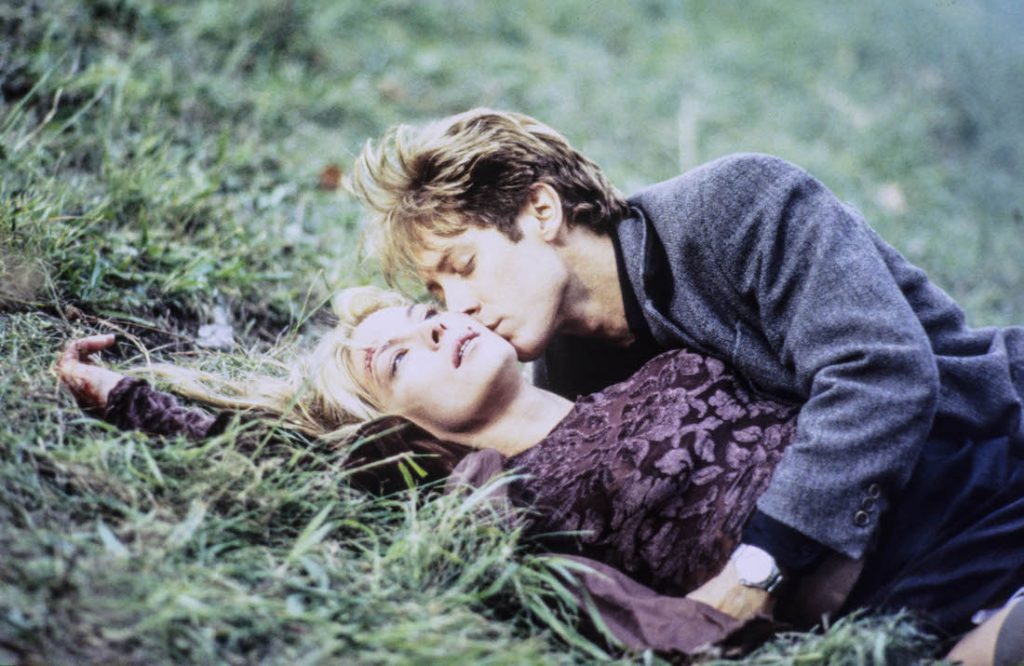
The performances are great across the board, even if many of the characters don’t behave rationally even ignoring the car crash fetish. The story doesn’t really explain why Helen becomes so attracted to James, who was essentially to blame for her own husband’s death. One assumes she was in an unhappy marriage and there was a weird connection made in the aftermath of the crash, but it would have been nice to get more insight into what Helen’s journey into the same subculture has been like. It would have made more sense if we came to realise Helen was already part of Vaughn’s clique, so her head-on crash with James was just a coincidence, and she could be the person introducing her new boyfriend to their sexual underworld. But no, Helen’s in a parallel narrative that doesn’t get enough exploration.
James Spader’s great in what’s admittedly a fairly blank role, in the sense he’s a relatively average guy who gets sucked into this sub-culture and starts to enjoy how it makes him feel. It’s a new kink for him. But again, it feels like the story underserves the female characters, because his wife’s role is more abstract and difficult to latch onto. We understand they both already have a polyamorous relationship, but I’d have liked to see her offer some pushback to her boyfriend now taking things into this new realm. It does make sense that she’d get a kick out of having sex with Vaughn in the back of James’s car, as they go through a car wash (temporarily hidden from view by the rollers), but beyond that the arc of what Deborah Kara Unger’s asked to do is less plausible. But she’s a terrific actress, so it’s a shame her career peaked too early with Crash, The Game (1997), and Payback (1999).
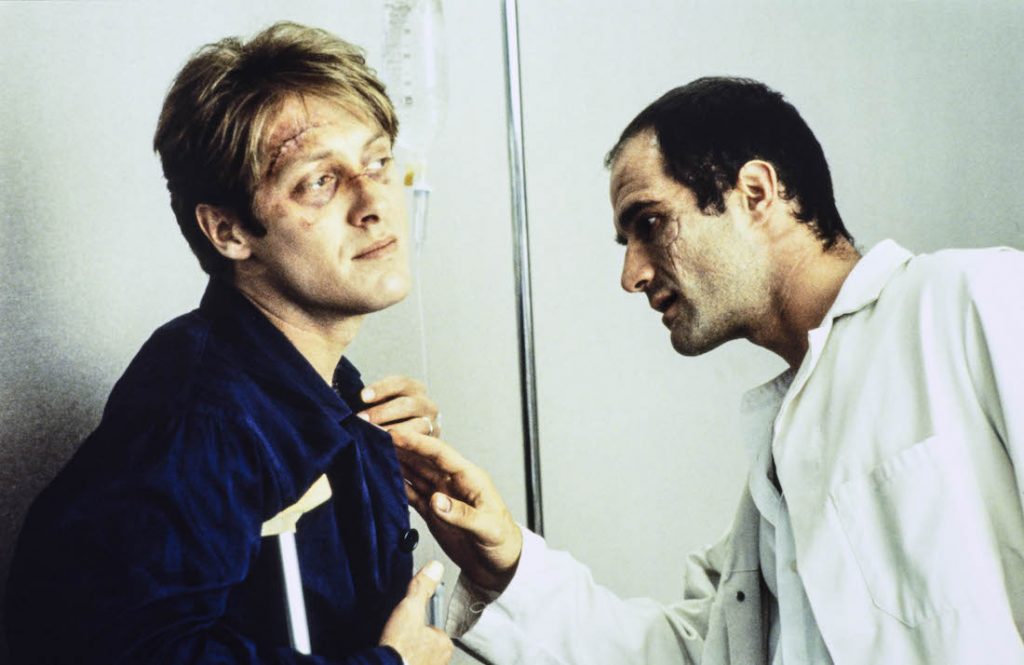
Elias Koteas is probably the most fascinating character, as the guy who’s already obsessed with car crashes and has built an illicit business on it to some extent. One of the best scenes is when he’s narrating the circumstances of the famous car crash killed James Dean in 1955, then gets into an exact replica of the late Hollywood actor’s ‘Little Bastard’ sports car and recreates the tragedy in front of spectators sat on bleachers. It’s such a bizarre insight into his psychology and Koteas manages the difficult challenge of making Vaughn seem peculiar but sane, just hopelessly transfixed by something that’s difficult to understand. But he’s definitely creepy, as a scene where he’s photographing a freeway accident proves, as he reaches out to touch part of an overturned car almost like a hormonal teenage boy straining to touch an exposed breast.
Crash remains a distinctive and troubling film, but I think audiences have matured enough to not feel so repulsed by its strangeness. Or we’ve become desensitised to extreme cinema, perhaps. Either way, this is a difficult film to love, or feel like watching more than once, but it’s possibly the best distillation of themes apparent in many of David Cronenberg’s earlier works.
USA | 1996 | 100 MINUTES (UNCUT) | 1.66:1 | COLOUR | ENGLISH

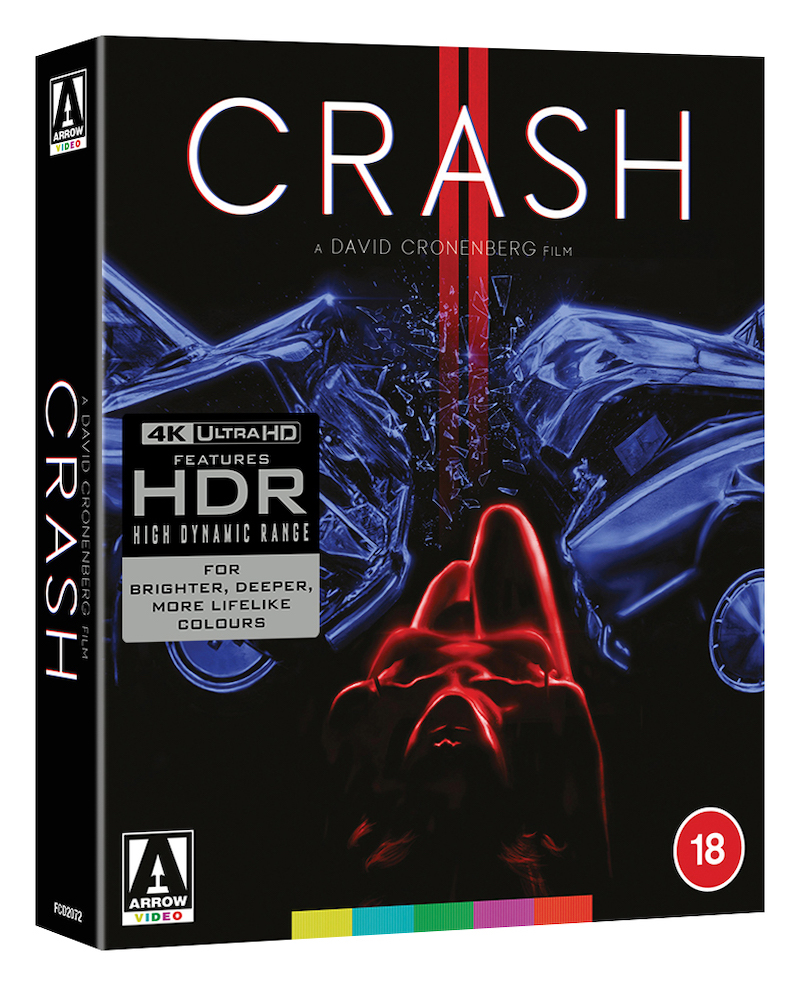
Arrow Video have only recently started releasing discs in 4K Ultra HD, and they’re doing a sterling job. This format really showcases the quality of their restoration efforts, with great details and accurate colours that never betray the fact Cronenberg shot this on 35mm in the mid-1990s. It’s a beautiful transfer that makes Crash feel like it was made only yesterday.
It’s a shame there’s no Dolby Atmos/DTS:X soundtrack to compliment the prestige video treatment of this new release, but the DTS-HD 5.1 is enough to sink viewers into the mood of the piece. It does a particularly great job with Howard Shore’s mesmerising soundtrack, which really comes to the fore in this mix. The dialogue is noticeably ‘close’ to the ear, almost like you can tell many of the actors have re-recorded their lines in a studio later, but it gives the film a slightly intimate ASMR feel at times. Which is quite appropriate given the sexual subject matter!

director: David Cronenberg.
writer: David Cronenberg (based on the novel by J.G Ballard).
starring: James Spader, Holly Hunter, Elias Koteas, Deborah Kara Unger & Rosanna Arquette.
1 Comments
This site uses Akismet to reduce spam. Learn how your comment data is processed.

A good review. I remember this film as a true exploration of the fringes of hedonism. I think Holly Hunter’s character was having a bit of risky sex in her car when Spader’s character hit her and killed her husband.
I don’t think any more explanation for their or any of the other characters’s behavior is needed. For Spader’s character and his wife, this is just an extension of their already kinky sex life. In fact, it’s the kink they’ve been waiting for. All the characters know they will eventually die in one of their crashes, but that makes it all the more meaningful for them. Hunter’s character’s husband went out the way he might have wanted to go and Holly will eventually follow him, as will they all.
I think there was controversy about this because some suspected that this scenario could actually work. That is, that people might actually begin doing this and there’d be enough of a minority who got into it to cause a panic. It’s not obvious to me why they were wrong.